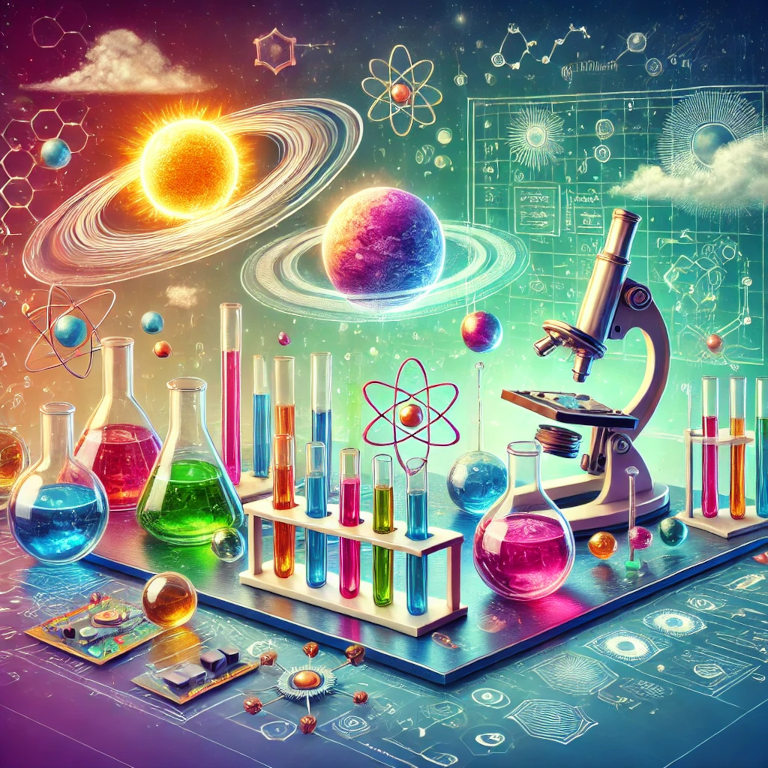Science experiments are a fundamental part of Science and Education, offering hands-on learning experiences that bring theoretical concepts to life. As an expert in Science and Education, I will delve into the importance of science experiments, explore different types, and provide insights on how to conduct them effectively. This comprehensive guide will help readers understand the value of science experiments in fostering curiosity, critical thinking, and a deeper understanding of the natural world.
The Importance of Science Experiments
Science experiments play a crucial role in education by:
- Enhancing Understanding: Experiments allow students to see and experience scientific principles in action, making abstract concepts more concrete and understandable.
- Encouraging Curiosity: Hands-on activities stimulate curiosity and encourage students to ask questions, leading to a deeper interest in science.
- Developing Critical Thinking: Designing and conducting experiments require careful planning, observation, and analysis, fostering critical thinking and problem-solving skills.
- Promoting Engagement: Interactive and engaging experiments can make learning more enjoyable and memorable, motivating students to explore science further.
Types of Science Experiments
1. Chemistry Experiments: These experiments explore chemical reactions and properties. Examples include mixing baking soda and vinegar to create a volcanic eruption or using litmus paper to test the pH of various substances.
2. Physics Experiments: Physics experiments investigate the principles of motion, force, energy, and matter. Examples include building simple circuits to understand electricity or using pendulums to study gravity and motion.
3. Biology Experiments: These experiments focus on living organisms and life processes. Examples include dissecting flowers to study plant anatomy or observing microorganisms under a microscope.
4. Earth Science Experiments: These experiments explore geological and environmental processes. Examples include creating models of the water cycle or simulating erosion with soil and water.
5. Space Science Experiments: These experiments examine astronomical concepts. Examples include modeling the solar system or using a telescope to observe celestial objects.
How to Conduct Effective Science Experiments
1. Choose a Topic: Select a topic that aligns with your curriculum or interests. Ensure it is appropriate for the age and skill level of the participants.
2. Formulate a Hypothesis: A hypothesis is a testable prediction about the outcome of the experiment. It should be clear and concise, providing a basis for the investigation.
3. Gather Materials: Prepare all necessary materials and equipment before starting the experiment. Ensure you have everything you need to conduct the experiment safely and effectively.
4. Plan the Procedure: Outline the steps of the experiment in a detailed procedure. This should include instructions on how to set up the experiment, what to observe, and how to record data.
5. Conduct the Experiment: Follow the procedure carefully, making observations and recording data as you go. Ensure all participants follow safety guidelines.
6. Analyze the Results: Review the data collected during the experiment. Look for patterns or trends that support or refute the hypothesis.
7. Draw Conclusions: Based on the analysis, draw conclusions about the experiment. Discuss whether the results support the hypothesis and what they reveal about the scientific concept being investigated.
8. Communicate Findings: Share the results and conclusions of the experiment. This can be done through written reports, presentations, or discussions.
Example Science Experiments
1. Lava Lamp Experiment: This fun and visually appealing experiment demonstrates the principles of density and chemical reactions. You will need a clear bottle, vegetable oil, water, food coloring, and Alka-Seltzer tablets. Fill the bottle with oil and water, add a few drops of food coloring, and drop in a tablet to create a mesmerizing lava lamp effect.
2. Plant Growth Experiment: This biology experiment investigates the effects of different variables on plant growth. Plant seeds in multiple pots, varying conditions such as light, water, and soil type. Observe and record the growth of the plants over time to understand how these factors influence growth.
3. Simple Circuit Experiment: This physics experiment helps students understand electrical circuits. You will need a battery, wires, a light bulb, and a switch. Connect the components to create a complete circuit, demonstrating how electricity flows and powers the light bulb.
Science experiments are invaluable tools in Science and Education, providing hands-on learning experiences that enhance understanding, stimulate curiosity, and develop critical thinking skills. By exploring different types of experiments and following best practices for conducting them, educators can create engaging and educational experiences that inspire a love for science. Embrace the power of science experiments to unlock the mysteries of the natural world and ignite a passion for discovery in learners of all ages.






